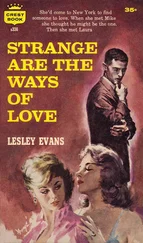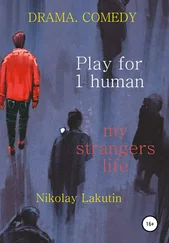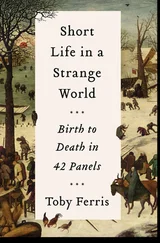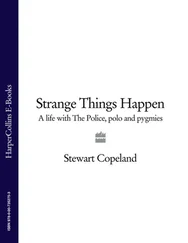Douglas Hofstadter - I Am a Strange Loop
Здесь есть возможность читать онлайн «Douglas Hofstadter - I Am a Strange Loop» весь текст электронной книги совершенно бесплатно (целиком полную версию без сокращений). В некоторых случаях можно слушать аудио, скачать через торрент в формате fb2 и присутствует краткое содержание. Жанр: Прочая документальная литература, на английском языке. Описание произведения, (предисловие) а так же отзывы посетителей доступны на портале библиотеки ЛибКат.
- Название:I Am a Strange Loop
- Автор:
- Жанр:
- Год:неизвестен
- ISBN:нет данных
- Рейтинг книги:4 / 5. Голосов: 1
-
Избранное:Добавить в избранное
- Отзывы:
-
Ваша оценка:
- 80
- 1
- 2
- 3
- 4
- 5
I Am a Strange Loop: краткое содержание, описание и аннотация
Предлагаем к чтению аннотацию, описание, краткое содержание или предисловие (зависит от того, что написал сам автор книги «I Am a Strange Loop»). Если вы не нашли необходимую информацию о книге — напишите в комментариях, мы постараемся отыскать её.
I Am a Strange Loop — читать онлайн бесплатно полную книгу (весь текст) целиком
Ниже представлен текст книги, разбитый по страницам. Система сохранения места последней прочитанной страницы, позволяет с удобством читать онлайн бесплатно книгу «I Am a Strange Loop», без необходимости каждый раз заново искать на чём Вы остановились. Поставьте закладку, и сможете в любой момент перейти на страницу, на которой закончили чтение.
Интервал:
Закладка:
What about people with Alzheimer’s disease and other forms of dementia — are they still “just as Conscious” as they always were, until the moment of their death? What makes something be “the same entity” over long periods of time, anyway? Who or what decreed that the changing pattern that over several decades was variously known as “Ronnie Reagan”, “Ronald Reagan”, “Governor Reagan”, “President Reagan”, and “Ex-President Reagan” was “one single entity”? And if it truly, objectively, indisputably was one single entity no matter how ephemeral and wispy it became, then mightn’t that entity still exist?
And what about Consciousness for fetuses (or for their growing brains, even when they consist of just two neurons)? What about for cows (or their brains)? What about for goldfish (or their brains)? What about for viruses?
As I hope these lists of enigmas make clear, the questions entailed by a Capitalized Essence called “Consciousness” or élan mental abound and multiply with out end. Belief in dualism leads to a hopelessly vast and murky pit of mysteries.
Semantic Quibbling in Universe Z
There is one last matter I wish to deal with, and that has to do with Dave Chalmers’ famous zombie twin in Universe Z. Recall that this Dave sincerely believes what it is saying when it claims that it enjoys ice cream and purple flowers, but it is in fact telling falsities, since it enjoys nothing at all, since it feels nothing at all — no more than the gears in a Ferris wheel feel something as they mesh and churn. Well, what bothers me here is the uncritical willingness to say that this utterly feelingless Dave believes certain things, and that it even believes them sincerely. Isn’t sincere belief a variety of feeling? Do the gears in a Ferris wheel sincerely believe anything? I would hope you would say no. Does the float-ball in a flush toilet sincerely believe anything? Once again, I would hope you would say no.
So suppose we backed off on the sincerity bit, and merely said that Universe Z’s Dave believes the falsities that it is uttering about its enjoyment of this and that. Well, once again, could it not be argued that belief is a kind of feeling? I’m not going to make the argument here, because that’s not my point. My point is that, like so many distinctions in this complex world of ours, the apparent distinction between phenomena that do involve feelings and phenomena that do not is anything but black and white.
If I asked you to write down a list of terms that slide gradually from fully emotional and sentient to fully emotionless and unsentient, I think you could probably quite easily do so. In fact, let’s give it a quick try right here. Here are a few verbs that come to my mind, listed roughly in descending order of emotionality and sentience: agonize, exult, suffer, enjoy, desire, listen, hear, taste, perceive, notice, consider, reason, argue, claim, believe, remember, forget, know, calculate, utter, register, react, bounce, turn, move, stop. I won’t claim that my extremely short list of verbs is impeccably ordered; I simply threw it together in an attempt to show that there is unquestionably a spectrum, a set of shades of gray, concerning words that do and that do not suggest the presence of feelings behind the scenes. The tricky question then is: Which of these verbs (and comparable adjectives, adverbs, nouns, pronouns, etc.) would we be willing to apply to Dave’s zombie twin in Universe Z? Is there some precise cutoff line beyond which certain words are disallowed? Who would determine that cutoff line?
To put this in perspective, consider the criteria that we effortlessly apply (I first wrote “unconsciously”, but then I thought that that was a strange word choice, in these circumstances!) when we watch the antics of the humanoid robots R2-D2 and C-3PO in Star Wars. When one of them acts fearful and tries to flee in what strike us as appropriate circumstances, are we not justified in applying the adjective “frightened”? Or would we need to have obtained some kind of word-usage permit in advance, granted only when the universe that forms the backdrop to the actions in question is a universe imbued with élan mental ? And how is this “scientific” fact about a universe to be determined?
If viewers of a space-adventure movie were “scientifically” informed at the movie’s start that the saga to follow takes place in a universe completely unlike ours — namely, in a universe without a drop of élan mental — would they then watch with utter indifference as some cute-looking robot, rather like R2-D2 or C-3PO (take your pick), got hacked into little tiny pieces by a larger robot? Would parents tell their sobbing children, “Hush now, don’t you bawl! That silly robot wasn’t alive ! The makers of the movie told us at the start that the universe where it lived doesn’t have creatures with feelings! Not one!” What’s the difference between being alive and living ? And more importantly, what merits being sobbed over?
Quibbling in Universe Q
At chapter’s end, we are thus brought back full circle to the “pedantic semantic” pronoun issues with which we began. Should we use different pronouns to refer to Universe Q’s Dave Chalmers (which is clearly a “he”) and to its indistinguishable zombie twin in Universe Z (who is just as clearly an “it”)? Of course such semantic quibbles aren’t limited to humans and their zombie twins. If a mosquito in our universe — our warm and fuzzy Universe Q overflowing with élan mental — is unquestionably a swattable “it”, then what about a turkey? And if a turkey is unquestionably just a Thanksgiving dinner, then what about a chinchilla? And if a chinchilla is just a fur coat, then what about a bunny and a cat and a dog? And then what about a human fetus? And what about a newborn baby? Where lies the “who” / “which” cutoff line?
As I said at the chapter’s outset, I see these as important questions — questions that in the end have everything to do with matters of life and death. They may not be easy to answer, but they are important to ponder. Semantics is not always just pedantic quibbling.

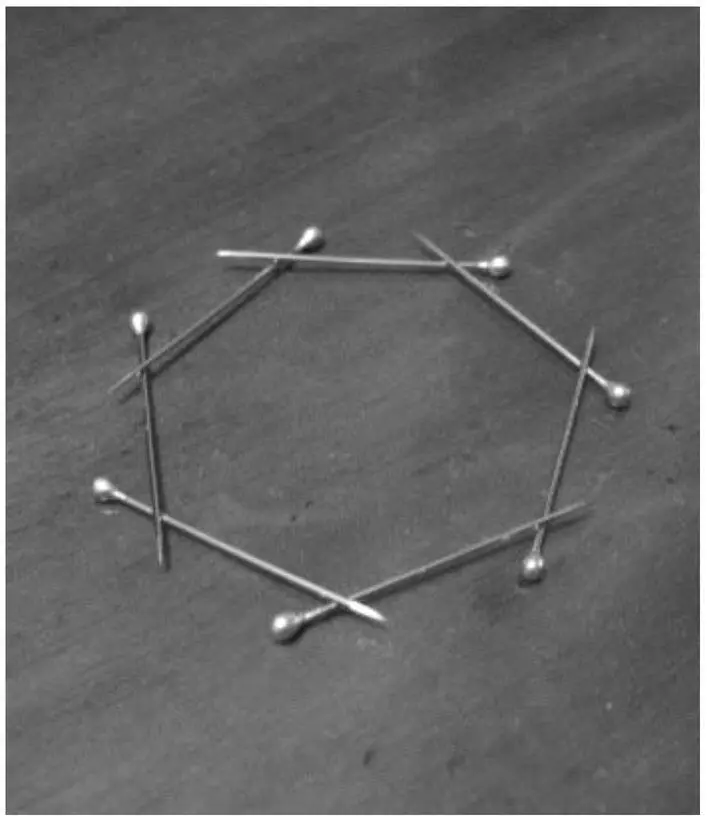
CHAPTER 23
Killing a Couple of Sacred Cows

A Cerulean Sardine
THERE’S an idea in the philosophical literature on consciousness that makes me sea-blue, and that is the so-called “problem of the inverted spectrum”. After describing this sacred cow as accurately I can, I shall try to slaughter it as quickly as I can. (It suffers from mad sacred cow disease.)
It all comes from the idea that you are supposedly so different from me that there is no way to cross the gap between our interiorities — no way for you to know what I am like inside, or vice versa. In particular, when you look at a bunch of red roses and I look at the same bunch of red roses, we both externalize what we are seeing by making roughly the same noise (“red roses”), but maybe, for all you know, what I am experiencing as redness inside my private, inaccessible cranium is what you, if only you could “step inside” my subjectivity for a moment or two, would actually call “blue”. (By the way, advocates of the inverted-spectrum riddle would spurn any suggestion that you and I actually are already inside each other, even the littlest bit. Their riddle is predicated upon the existence of an Unbridgeable You–Me Chasm — that is, the absolute inaccessibility by one person of any other person’s interiority. In other words, belief in the inverted spectrum is a close cousin to belief in Cartesian Egos — the idea that we are all disjoint islands and that “you can’t get there from here”.)
Читать дальшеИнтервал:
Закладка:
Похожие книги на «I Am a Strange Loop»
Представляем Вашему вниманию похожие книги на «I Am a Strange Loop» списком для выбора. Мы отобрали схожую по названию и смыслу литературу в надежде предоставить читателям больше вариантов отыскать новые, интересные, ещё непрочитанные произведения.
Обсуждение, отзывы о книге «I Am a Strange Loop» и просто собственные мнения читателей. Оставьте ваши комментарии, напишите, что Вы думаете о произведении, его смысле или главных героях. Укажите что конкретно понравилось, а что нет, и почему Вы так считаете.



